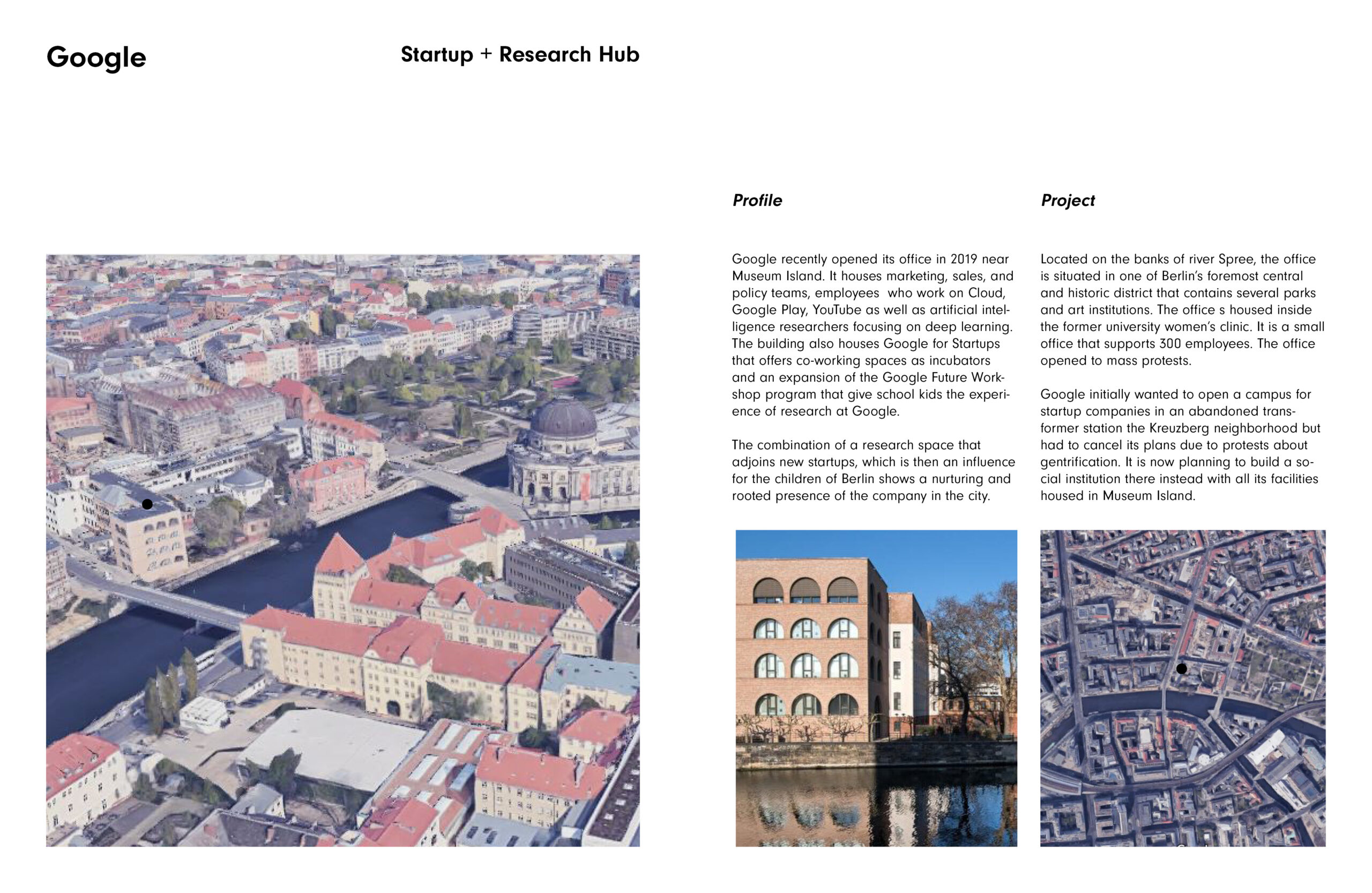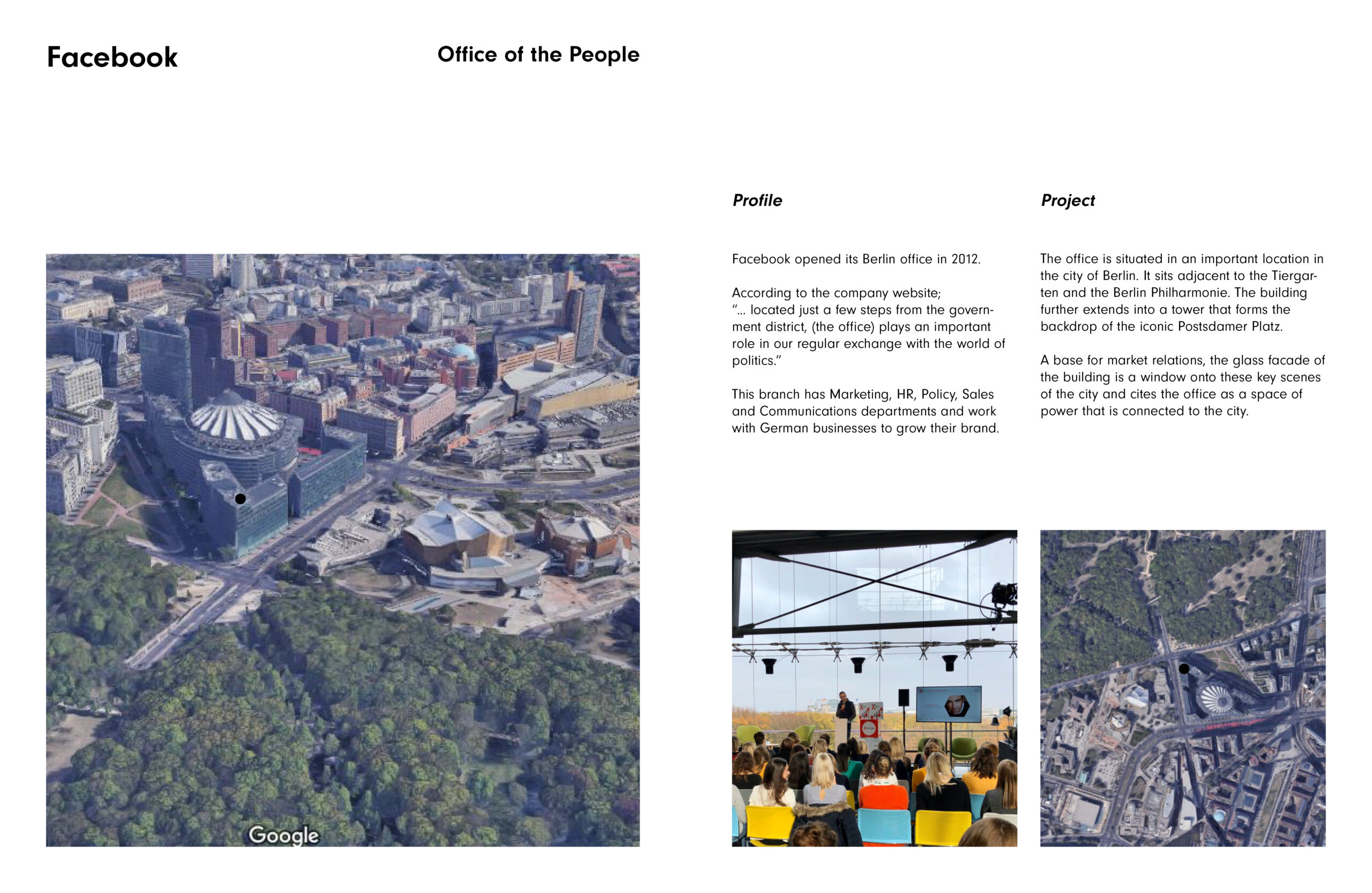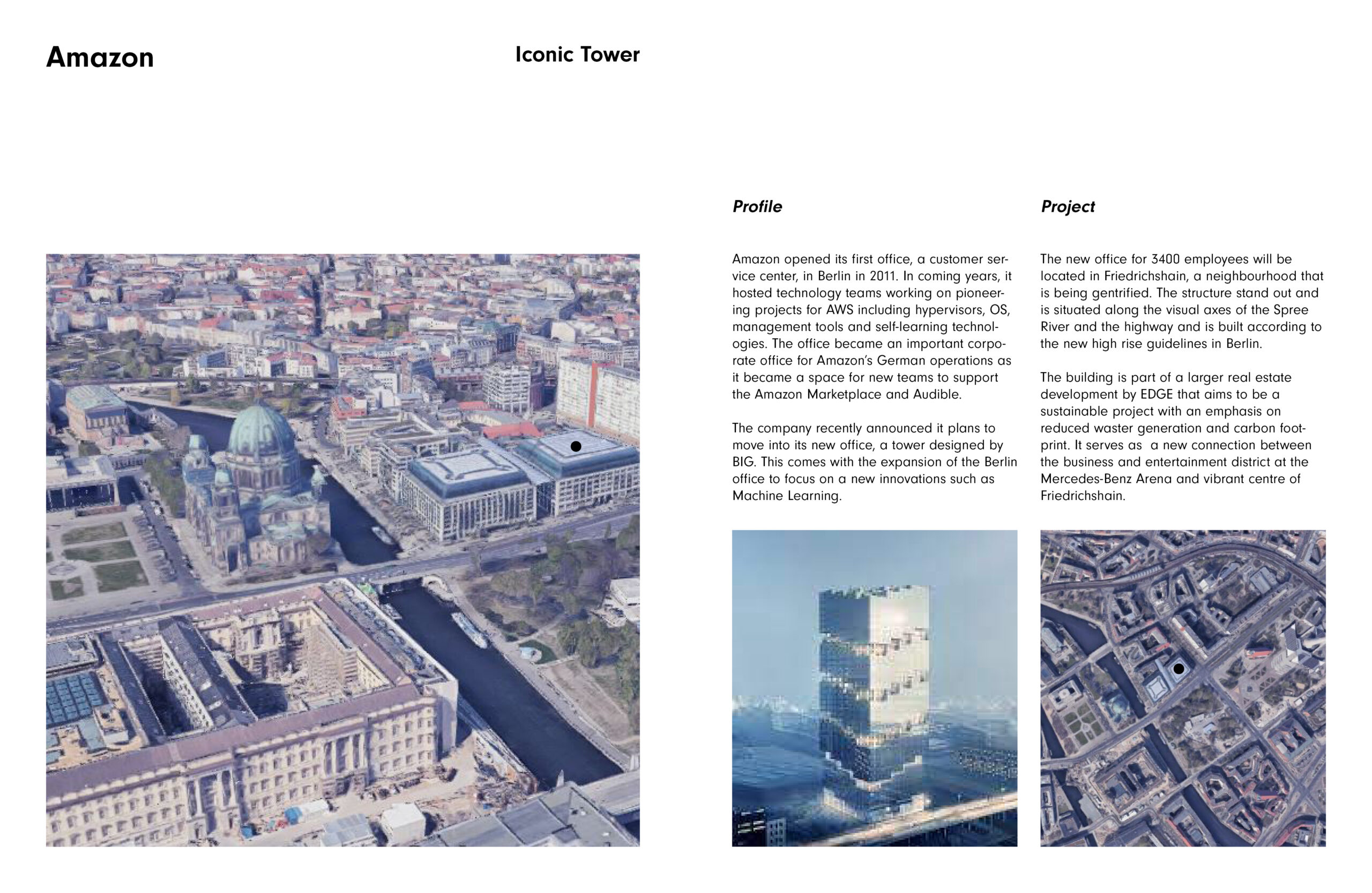Monitored and Marketed: The Rise of Surveillance for Profit
Living in a Digital Ecosystem : Convenience vs. Privacy
We live in a world where our daily life and the data we generate is constantly monitored, measured, curated, sold and supported by a digital ecosystem of products and services. Technology giants like Google, Apple, Amazon and Facebook have built these vast ecosystems that reach from individual users to entire communities, cities, and across the globe. Tackling our needs at every scale of our lives from health, finances, entertainment, to transportation, these systems pervade our lives while being further normalized by consumer culture.
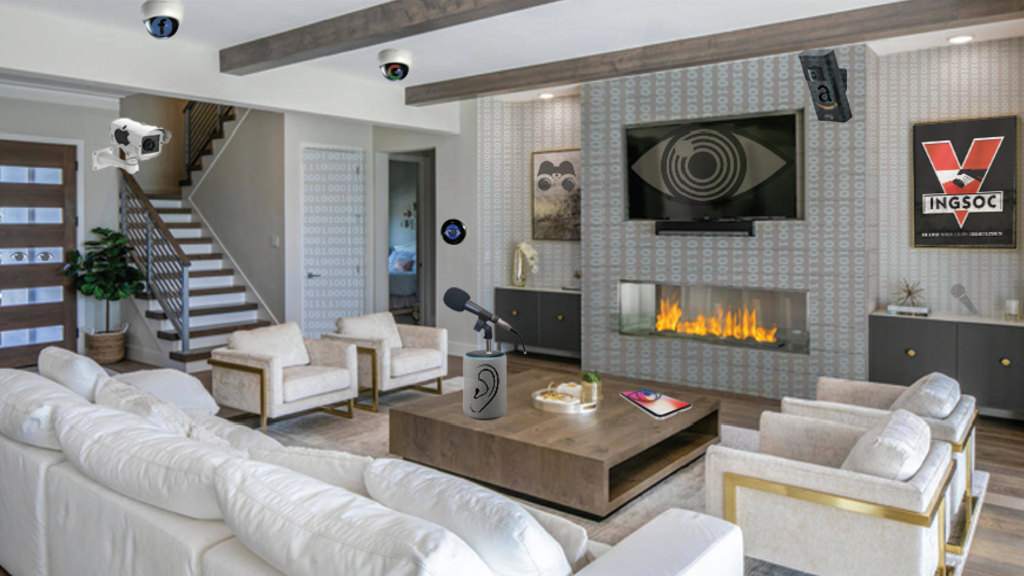
This digital ecosystem invites us users into their world offering services (often essential) that make our lives much easier and connect us to a larger framework of networked infrastructure. However, when we become a part of this world, we agree to participate on their terms. These “terms of service” mine our digital footprint for profit.

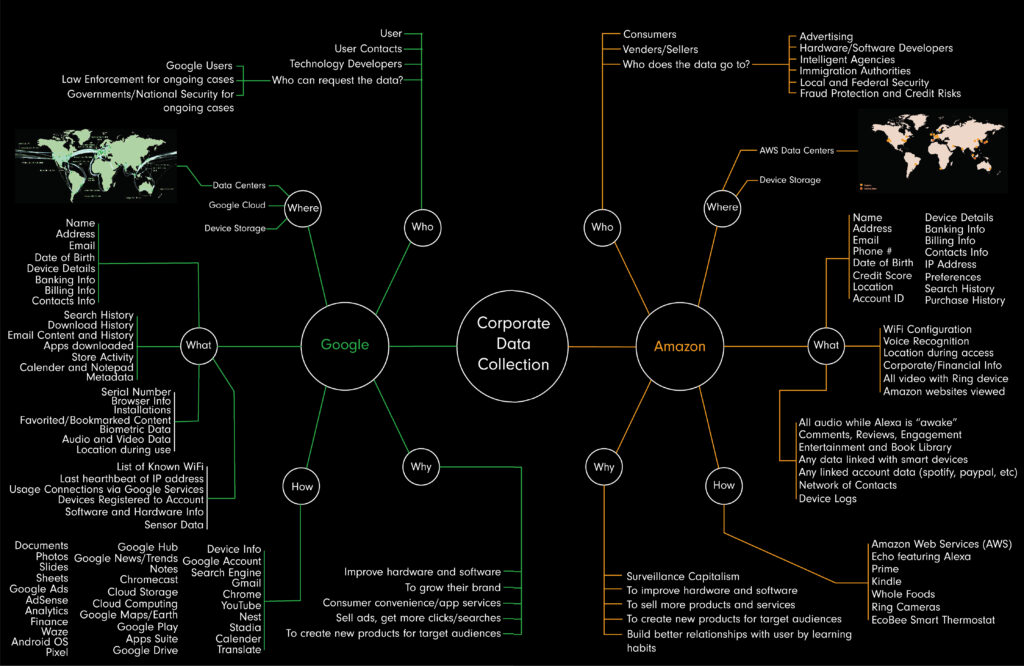
Surveillance Capitalism
Corporations offer the convenience of their products/services at the expense of user privacy. These companies’ products and services collect a wide range of user data, which is used to generate revenue through advertising, data-driven products, product refinement, and other methods within surveillance capitalism. Furthermore, governments and other actors can request this data in the interest of national security, which puts the company in a position to choose national security over user personal privacy.
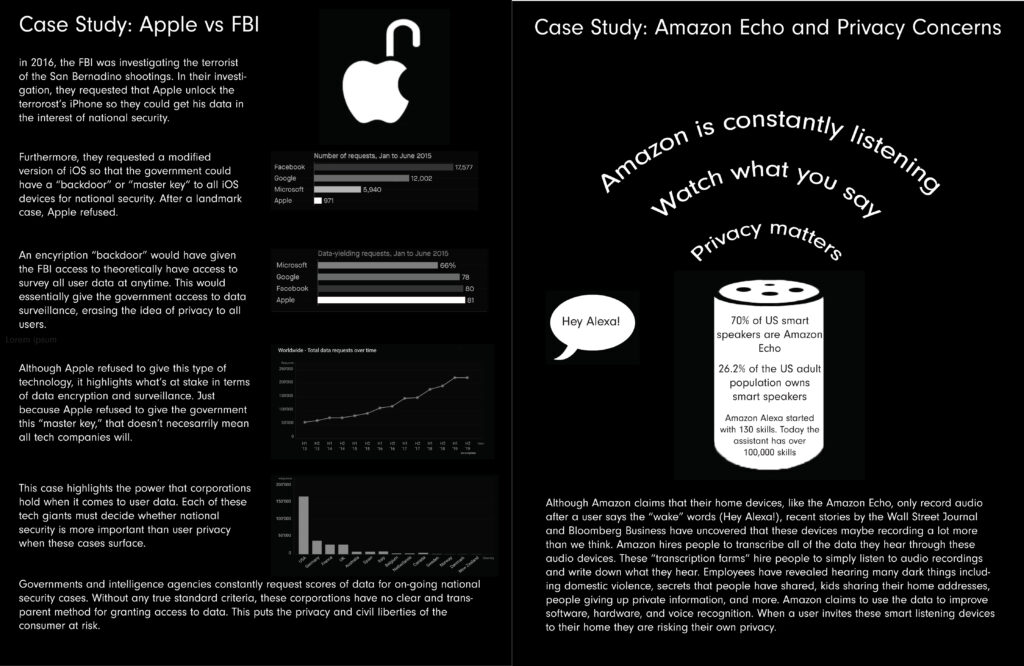
As we operate within their ecosystem, they have control of information that can be censored through a variety of methods, which affects the market and influences public opinion while shaping the perspectives of individuals. The degree of surveillance is increasingly being normalized throughout the world, leaving users susceptible. While these corporations have operationally improved society, their influence, and power over us can quickly become a danger to our civil liberties as human beings.
Monopoly and the Black Box
Def. : a complex system or device whose internal workings are hidden or not readily understood
The monopolistic control of major technology companies allows them to function as a Blackbox. Much of how they operate, gather data, make decisions and control their platforms is hidden from the public. Users typically have little insight into how their data is sold, used to target ads, and manage their experience with the service or product. These companies have grown exponentially in the past decade while buying out or destroying their competitors to ensure their monopoly is intact which enables them to continue to function in this manner, and resist moderation even from governments.
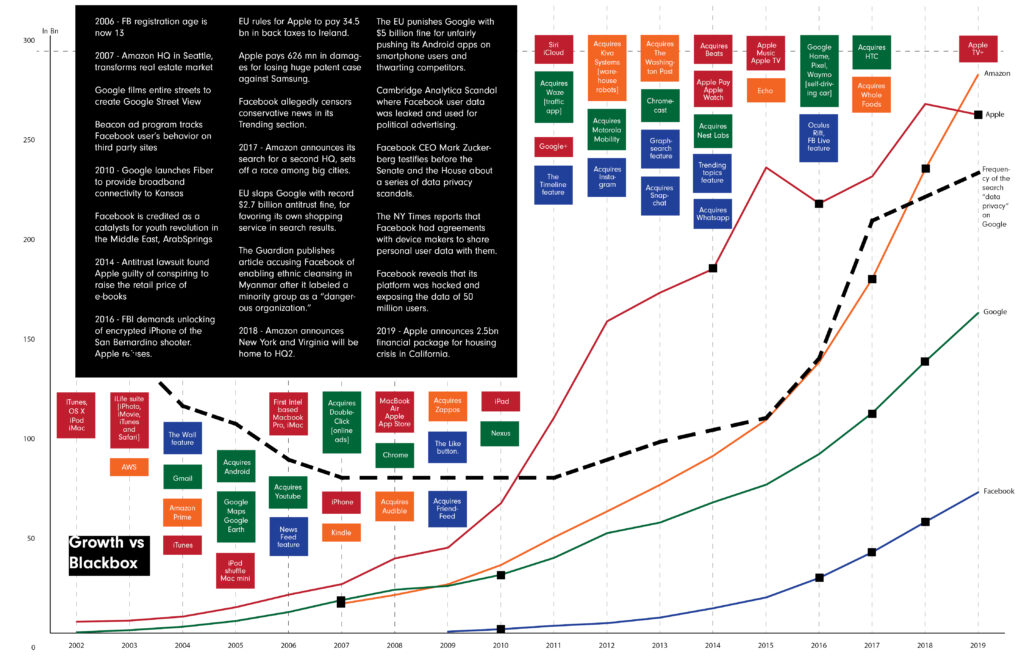
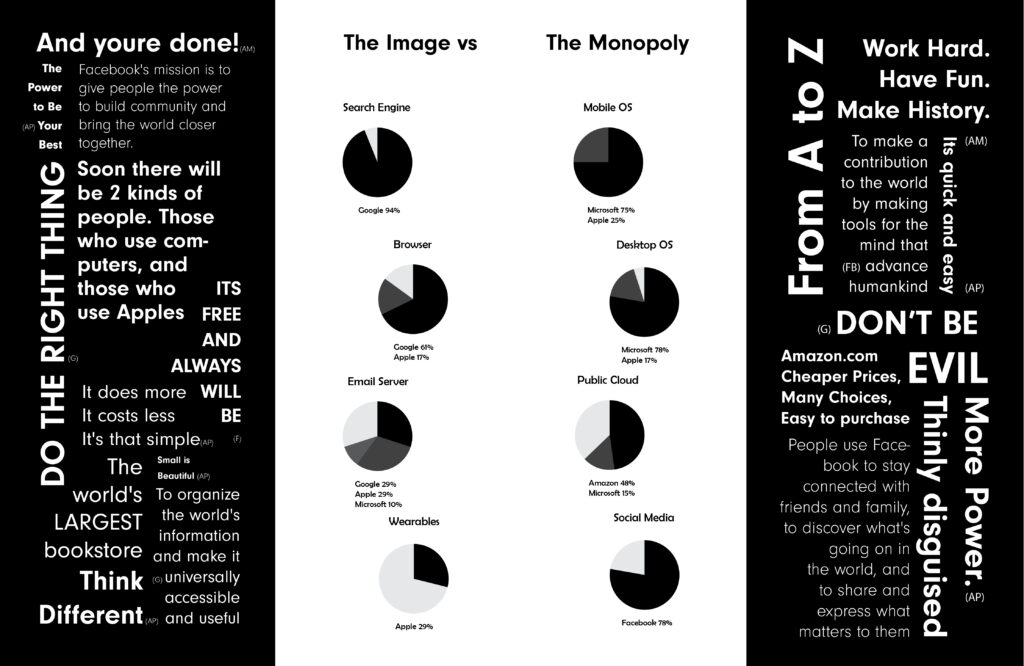
Big Tech in Berlin: The Future of Surveillance in the City
In the city of Berlin, big tech is poised to make a large imprint in the near future. The government is seeking to build a technology capital in the city and is trying to attract companies like Amazon, Facebook and Google to build their headquarters.
